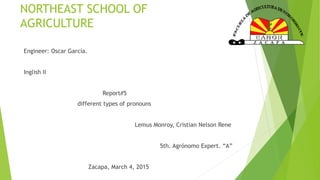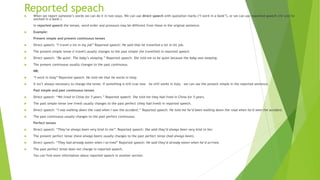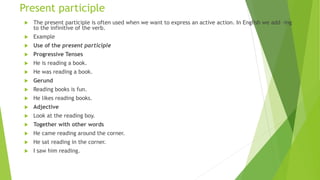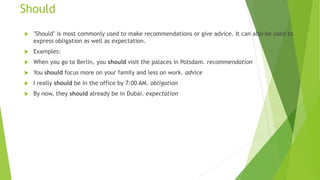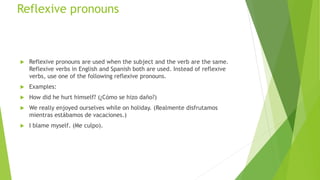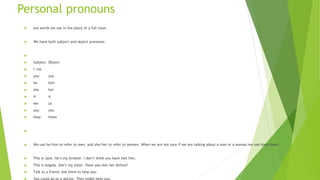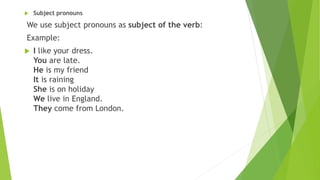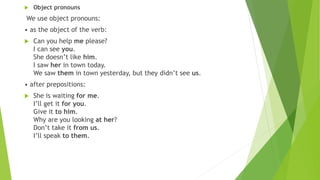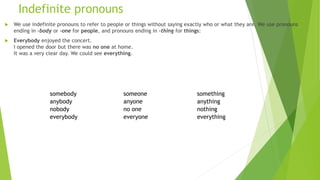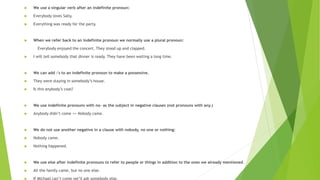This document provides information on different types of pronouns in English, including reported speech, present and past participles, the modal verb "should", reflexive pronouns, personal pronouns, and indefinite pronouns. For each pronoun type, it gives definitions and examples. It also provides links to additional online resources for further information on reported speech, participles, modal verbs like "should", and different categories of pronouns.
